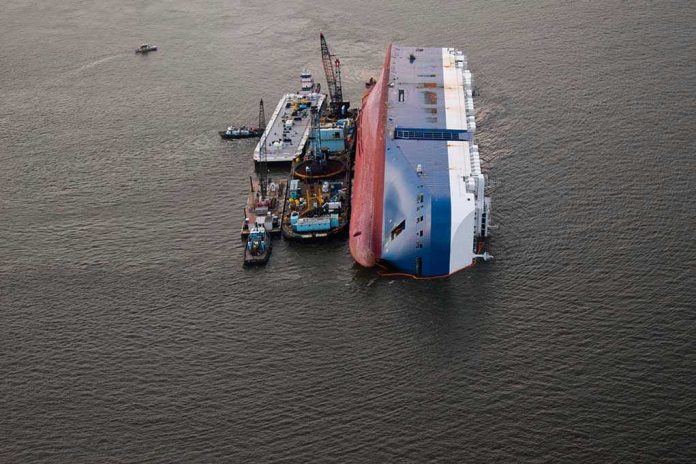
The world’s most dangerous waters just proved they’re not getting safer—pirates armed with RPGs hijacked a fuel-laden supertanker 560 miles from Somalia, and global shipping is suddenly on edge again.
Story Snapshot
- Somali pirates hijacked the Hellas Aphrodite, the first successful vessel seizure in the region since 2024.
- The attack signals a sharp resurgence in Somali piracy, exploiting weakened naval patrols and new tactics.
- International navies scramble to respond as pirates adapt, using hijacked dhows as motherships to strike farther offshore.
- Experts warn the region’s instability and economic desperation could make this the start of a new piracy crisis.
The Hijacking That Shook Maritime Security
November 6, 2025, started as just another day for the Hellas Aphrodite—an unremarkable tanker hauling gasoline from India to South Africa, crewed by 24 seasoned mariners. That changed in a burst of machine gun fire and rocket-propelled grenades, as pirates stormed the vessel 560 nautical miles off Eyl, Somalia. The crew, drilled in crisis, locked themselves inside their fortified citadel, buying precious time. This was no desperate skirmish in coastal waters; it was a meticulously planned assault deep in the Indian Ocean, the first successful hijacking in over a year. Aboard the ship, terror met preparation, while the world’s shipping industry watched a nightmare resurface.
Pirates didn’t just appear out of nowhere. Reports from late October showed Somali authorities intercepting suspicious dhows—ancient wooden boats—moving erratically, classic signs of pirate groups mobilizing. In the days before the Aphrodite hijacking, two other vessels survived attempted attacks, but the pirates, now equipped with heavy weapons and hijacked motherships, were undeterred. The success against the Aphrodite sent a clear message: the pirates are back, bolder and more capable than before, and the Indian Ocean is again wide open to their reach.
Why Somali Piracy Is Rising Again
Somali piracy is not a tale of swashbuckling outlaws—it is the result of politics, poverty, and security lapses colliding. After a decade of relative calm, global naval patrols have thinned out and Somali authorities are preoccupied with civil unrest, leaving maritime law enforcement dangerously lax. Pirates have seized the opportunity, adapting with new tactics: hijacking dhows to use as mobile bases, they can now strike hundreds of miles from shore. This approach, combined with heavy arms and insider knowledge of shipping routes, gives them a reach—and lethality—not seen since their 2011 heyday. The result: insurance premiums spike, shipping companies scramble to reroute, and every tanker crew transiting the region faces renewed peril.
For Somali pirates, the motivation remains unchanged—ransom. Criminal networks orchestrate these attacks, driven by profit and emboldened by the lack of consequences. The Somali government’s limited capacity on land and sea makes it nearly impossible to police these vast waters effectively. As pirates grow more sophisticated, international navies and the shipping industry face rising costs and diminishing leverage, forced to rely on security protocols like the crew’s citadel lockdown and the hope that help arrives in time.
The Stakes for Global Shipping and Security
The Hellas Aphrodite hijacking has reignited a crisis with global consequences. Every hour the ship remains under pirate control, the risk of ransom negotiations and violence grows. EU naval forces, led by Operation Atalanta, have dispatched warships and surveillance assets, but the sheer scale of the region makes timely intervention a logistical challenge. Each successful attack emboldens pirate groups and threatens to restore the lawless, high-stakes environment that cost global trade billions in the last decade.
Industry experts and security analysts are sounding alarms: unless international coalitions recommit resources and Somali governance improves, piracy will persist. The shipping industry faces an impossible calculus—pay higher premiums, risk crew safety, or reroute thousands of miles. Meanwhile, Somali coastal communities, caught between economic hardship and criminal opportunity, grapple with the fallout. The hijacking of the Aphrodite is more than a blip; it is a bellwether for a region where the boundaries of law and piracy blur, and where global inaction breeds new threats.



